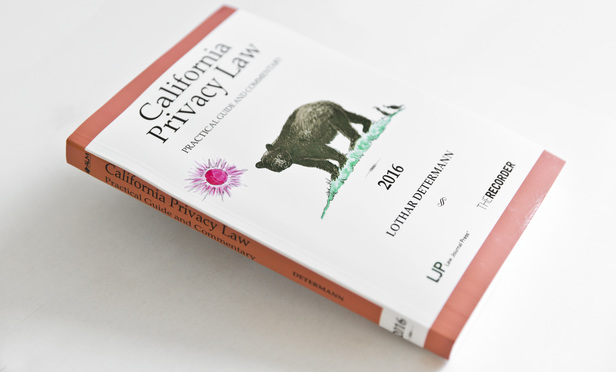Editor’s Note: This is the second of a two-part series on financial privacy protections under the Song-Beverly Credit Card Act of 1971, excerpted from Lothar Determann’s “California Privacy Law: Practical Guide and Commentary.” The book, published by The Recorder and Law Journal Press, is a comprehensive guide for companies and their attorneys on risk prevention, response, litigation and proper navigation of federal and state privacy laws.
Separating Data Collection from Credit Card Transaction
Under the Song-Beverly Credit Card Act of 1971, companies are not generally prohibited from collecting data from consumers, only in connection with credit card transactions. For example, companies may collect data from consumers who do not buy anything, or from consumers who pay with cash or debit cards. But, companies that process credit cards are not expressly exempt from liability merely because they separate the collection of additional data from the credit card transaction, e.g., by collecting data after completing the credit card transaction, collecting data in another part of their store, away from the check-out counter, or at a certain time before or after the credit card transaction. On its face, the statute is violated if a company accepts a credit card and requests the consumer to provide data that the company does not need for purposes of processing the credit card transaction—regardless of when and where the store employee makes the data request.
This content has been archived. It is available through our partners, LexisNexis® and Bloomberg Law.
To view this content, please continue to their sites.
Not a Lexis Subscriber?
Subscribe Now
Not a Bloomberg Law Subscriber?
Subscribe Now
LexisNexis® and Bloomberg Law are third party online distributors of the broad collection of current and archived versions of ALM's legal news publications. LexisNexis® and Bloomberg Law customers are able to access and use ALM's content, including content from the National Law Journal, The American Lawyer, Legaltech News, The New York Law Journal, and Corporate Counsel, as well as other sources of legal information.
For questions call 1-877-256-2472 or contact us at [email protected]



